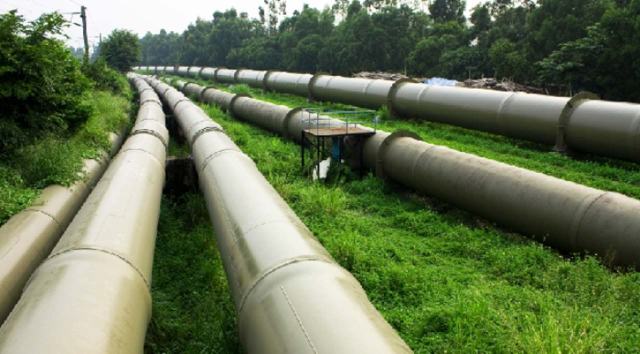 The scourge of pipeline vandalism and theft of petroleum products cost the nation N15.71bn according to the Nigerian National Petroleum Corporation, Punch reports.
The scourge of pipeline vandalism and theft of petroleum products cost the nation N15.71bn according to the Nigerian National Petroleum Corporation, Punch reports.
Data obtained from the NNPC showed that petroleum products worth N1.71bn were lost in January; N1.83bn in February; N1.59bn in March, and N1.64bn in April.
The value of products lost stood at N1.54bn in May; N1.40bn in June; N1.37bn in July; N1.67bn in August; N1.67bn in October and N1.29bn in November. No losses were recorded in September and December, according to the corporation.
A total of 441 points on petroleum products pipelines were vandalised last year, compared to 1,484 points in 2019, the NNPC data showed.
The corporation spent N53.36bn on pipeline repairs and management cost last year.
“Products theft and vandalism have continued to destroy value and put NNPC at a disadvantaged competitive position,” the NNPC said in its latest monthly report.
It said a total of 508 vandalised points was recorded between January 2020 to January 2021.
The NNPC said in collaboration with the local communities and other stakeholders, it continuously strove to reduce and eventually eliminate this menace.
The Group Managing Director, NNPC, Mallam Mele Kyari, said recently that the introduction of Operation White and the Automated Downstream Operations and Financial Monitoring Centre had made it possible for the corporation to monitor products supply and distribution across the country.
He said this had reduced illicit practices such as oil theft and cross border smuggling of petroleum products which used to cause dislocation in the supply and distribution matrix and huge revenue losses to the nation.
In January, the national oil company said a total of 96 companies from various jurisdictions had indicated interest in undertaking the rehabilitation of its downstream facilities, ranging from critical pipelines to depots and terminals, through the Build, Operate and Transfer financing model.
The Managing Director of the Nigerian Pipelines and Storage Company, Mrs Ada Oyetunde, said the exercise was in conformity with the mandate of the Federal Government to prioritise the rehabilitation of critical downstream infrastructure across the country.
She listed the facilities that would be rehabilitated by successful bidders to include critical pipelines for crude oil supply to the refineries and evacuation of refined products, depots, and terminals.
According to her, the objective is to get them ready to support the refineries when they become operational after their rehabilitation.
Poor maintenance and vandalism have left many of the depots and pipelines idle for years, with the number of fuel tankers on the roads increasing and wreaking havoc.


